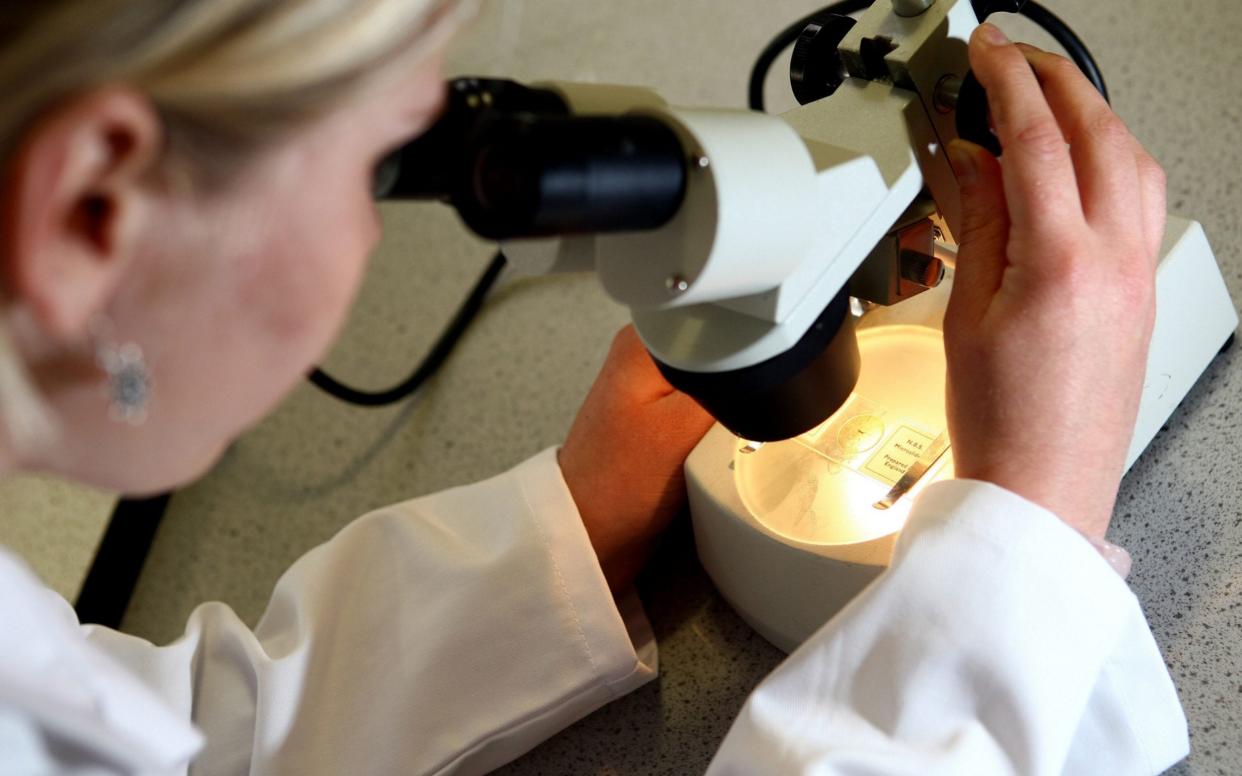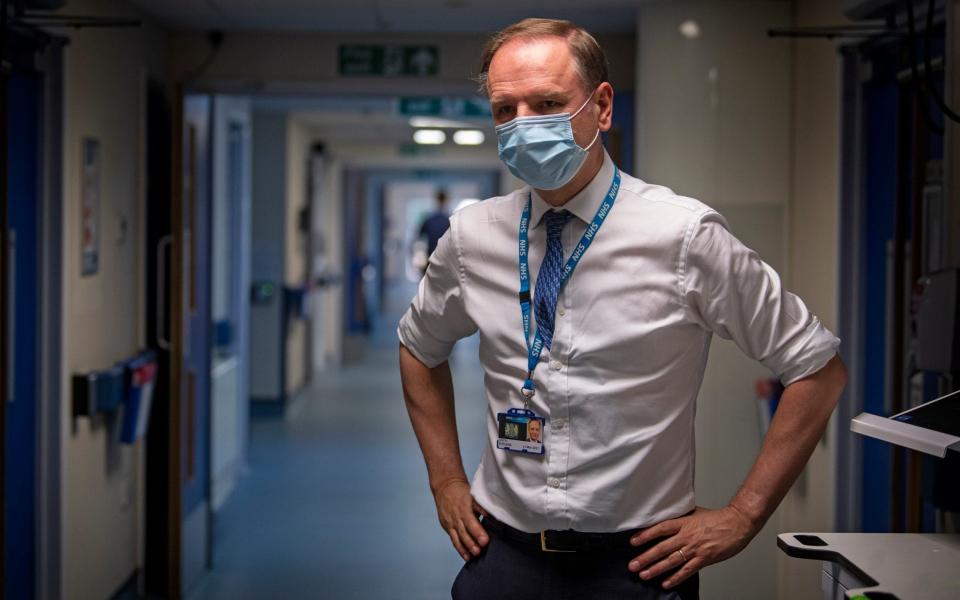Cancer patients to be offered test that tailors treatments to their genetics to avoid toxic side-effects

Cancer patients in England will be offered a new test which aims to tailor treatments to their genetics and avoid toxic side-effects.
People with some cancers will receive a blood test which detects whether they are genetically prone to experiencing the more serious effects of chemotherapy drugs.
Approximately 38,000 people start chemotherapy treatment with a group of drugs called fluoropyrimidines each year, and up to 40 per cent may have severe reactions to their treatment, with 1 per cent of toxicities proving fatal.
The test will tell patients if they are likely to have side-effects - which could include vomiting, diarrhoea, breathlessness and severe skin reactions - allowing them to opt for a different method of tackling tumours.
It was previously only available at a small number of hospitals, but is now being rolled out across the country by NHS England and NHS Improvement.

Professor Dame Sue Hill, chief scientific officer for England and senior officer for genomics at NHS England, said the rollout marks "an important moment" for how genomics can improve the safety of cancer treatments.
She said: "As our understanding of the role our DNA plays in disease grows, we will be able to use this approach to help develop personalised treatments for other conditions and embed genomics into routine care."
Dr Simon Vincent, research director at Breast Cancer Now, said the test is a "welcome step" towards ensuring the "kindest" modes of treatment are used.
The test works by detecting variants within a specific gene, known as DPYD, which are likely to mean a patient has a lower level of the enzyme needed to break down cancer drugs in the body, leaving them exposed to higher levels of toxicity.
John McGuire, 71, from London, who is undergoing chemotherapy for colorectal cancer at Guy's Hospital, was put on a lower dose after being found to have the form of the gene.
Mr McGuire, who is halfway through treatment which aims to cure his cancer, said: "I'm delighted with the treatment I have received from the team at Guy's Hospital and have had little to no side-effects from my treatment... I think I am going to be really happy with the outcome."
It marks the latest in a series of innovations and genomic discoveries adopted by the NHS to deliver personalised cancer care.
Cancer survival rates are already at a record high, but the NHS Long Term Plan aims to catch three-quarters of tumours at an early stage, when they are easier to treat.
The NHS says it has prioritised cancer treatment during the coronavirus pandemic, as well as securing £160 million for cancer drugs which have less impact on patients' immune systems.
But the crisis of delayed cancer treatments and missed diagnoses seen in the first wave looks set to be repeated, a survey of GPs suggested earlier this year.
A poll of 1,004 GPs in October for Cancer Research UK found concerns about people facing long delays for scans to diagnose cancers of the bowel, lung, oesophagus and brain.
It comes after NHS England data released earlier this month showed that more than 350,000 patients in England had been waiting more than six weeks for a key diagnostic test in October.
A total of 362,100 patients were waiting for one of 15 standard tests, including an MRI scan, non-obstetric ultrasound or gastroscopy.
The equivalent number waiting for more than six weeks in October 2019 was 33,200.
The number has fallen in recent months, however, after peaking at 571,500 in May 2020.

